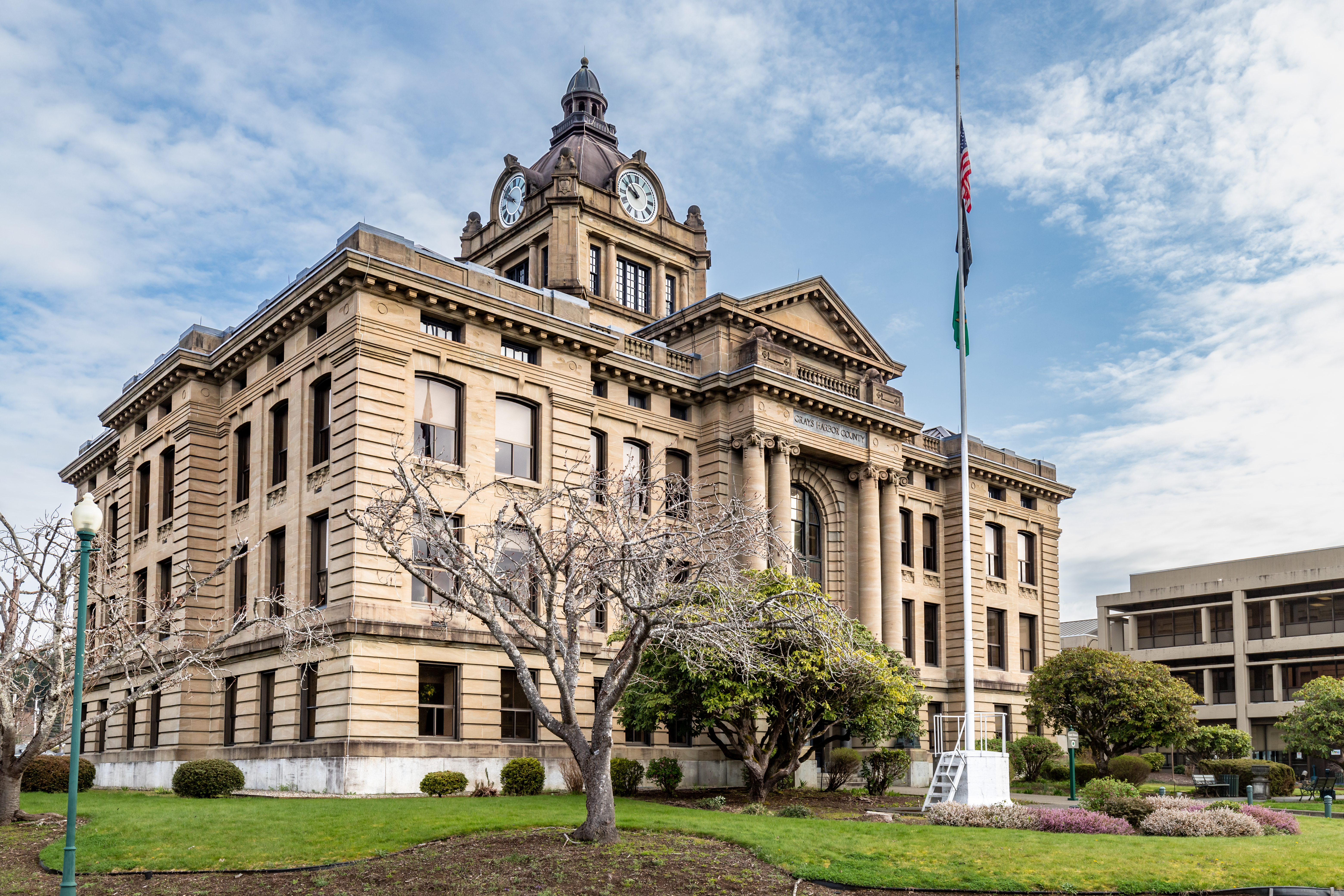Washington
The state of Washington delegates to its local governments the responsibility for funding and administering indigent defense services, though the state reimburses a portion of the costs. A state agency provides limited oversight of local indigent defense.
The state of Washington funds and administers all indigent defense services for adult criminal cases in its appellate courts. A state agency administers services. The state has no commission providing oversight of the agency.
-
39 Counties Primarily Locally Funded
-
39 Counties Locally Administered
-
39 Counties with No Commission and Limited Authority
-
39 Counties State Funded
-
39 Counties State Administered
-
39 Counties with No Commission, But Statewide Authority
Counties and municipalities in Washington are responsible for funding and administering adult and juvenile trial-level indigent defense services. State law requires local governments to adopt standards related to, among others: attorney qualifications, training and supervision, performance, and compensation. Localities can provide services through a public defender office, contracts with private attorneys or law firms, or a combination of the two.
Counties and municipalities complying with state reporting requirements can receive some state funds through the Washington State Office of Public Defense (OPD). OPD provides oversight of those funds only in participating localities. OPD contracts with private attorneys to provide services in various case types including appeals but not for trial-level adult and juvenile criminal cases. Diverse authorities appoint 13 members to an advisory committee to oversee OPD. The state supreme court appoints the OPD director from a list of nominees submitted by the advisory committee.
The Washington State Office of Public Defense (OPD) is responsible for determining how indigent defense services in adult criminal appeals are provided across the state. A director, who leads OPD, must coordinate with the state supreme court and court of appeals to determine the delivery model. State law prohibits OPD from providing direct representation. Instead, OPD contracts with private attorneys to deliver services. Trial-level county public defenders can, but rarely do, opt to continue their representation into the appeal stage.
An advisory committee oversees OPD. Diverse authorities appoint 13 members to the committee. The state supreme court appoints the OPD director from a list of nominees submitted by the advisory committee. OPD also provides representation in juvenile and some civil appeals. OPD does not provide any trial-level representation, but it does support local governments through some grant funding for trial-level services.

Dig Deeper
Who serves on the advisory committee?
How does the state disseminate funding to local governments for trial-level criminal indigent defense?
Does the Office of Public Defense fund and administer other programs adjacent to trial-level criminal indigent defense?
What is the extraordinary criminal justice costs program?
What rules must local governments follow when establishing a local or regional public defender office?
What role does the supreme court play in indigent defense?
Does a public defender association fill any obligations avoided by the state?
In which branch of state government does the indigent defense system reside?
Articles (7)
-


New ACLU lawsuit: Washington State fails to ensure effective delinquency representation
April 3, 2017 -


Indiana stands as a cautionary tale for other states with similar indigent defense system models
October 24, 2016 -


Federal Court orders Washington cities to remedy willfully deficient right to counsel services
December 9, 2013
Support Our Work
Criminal justice issues that disproportionately harm poor people, such as wrongful convictions and over-incarceration, cannot be fixed if indigent defendants are given attorneys who do not have the time, resources, or qualifications, to be a constitutional check on government. Yet, investment in improving indigent defense services remains largely neglected. The Sixth Amendment Center is the only nonprofit organization in the country that exclusively examines, uncovers, and helps fix the root of the indigent defense crisis in which inequality is perpetuated because poor defendants do not get a fair fight.
The Sixth Amendment Center is a tax-exempt 501(c)(3) nonprofit organization under EIN: 45-3477185.
Donations are tax-deductible to the fullest extent allowable under the law.
